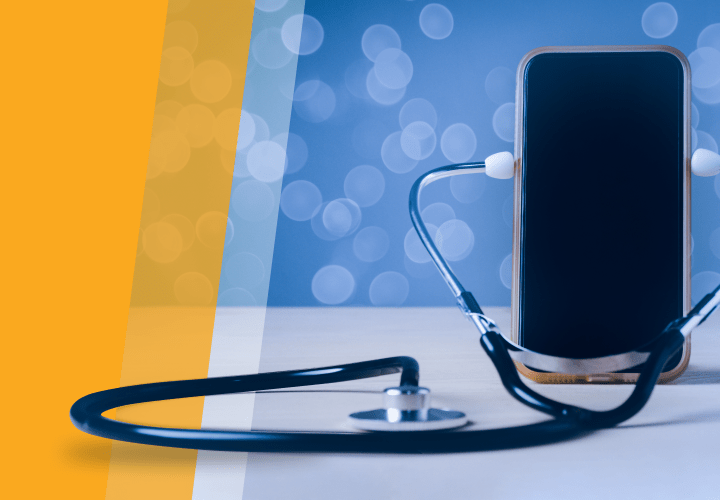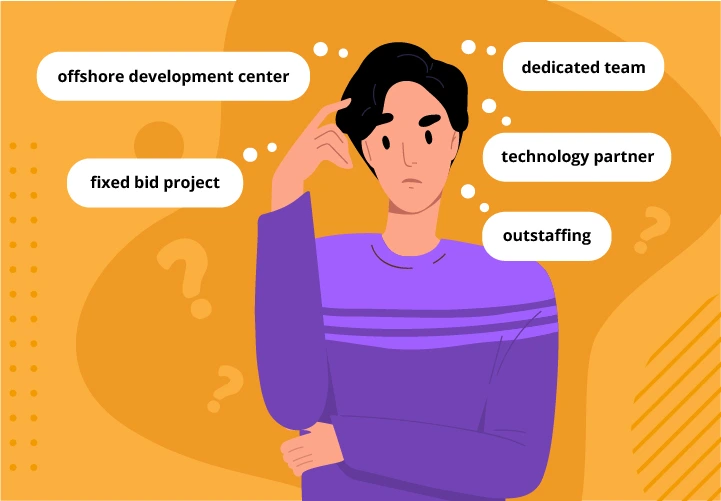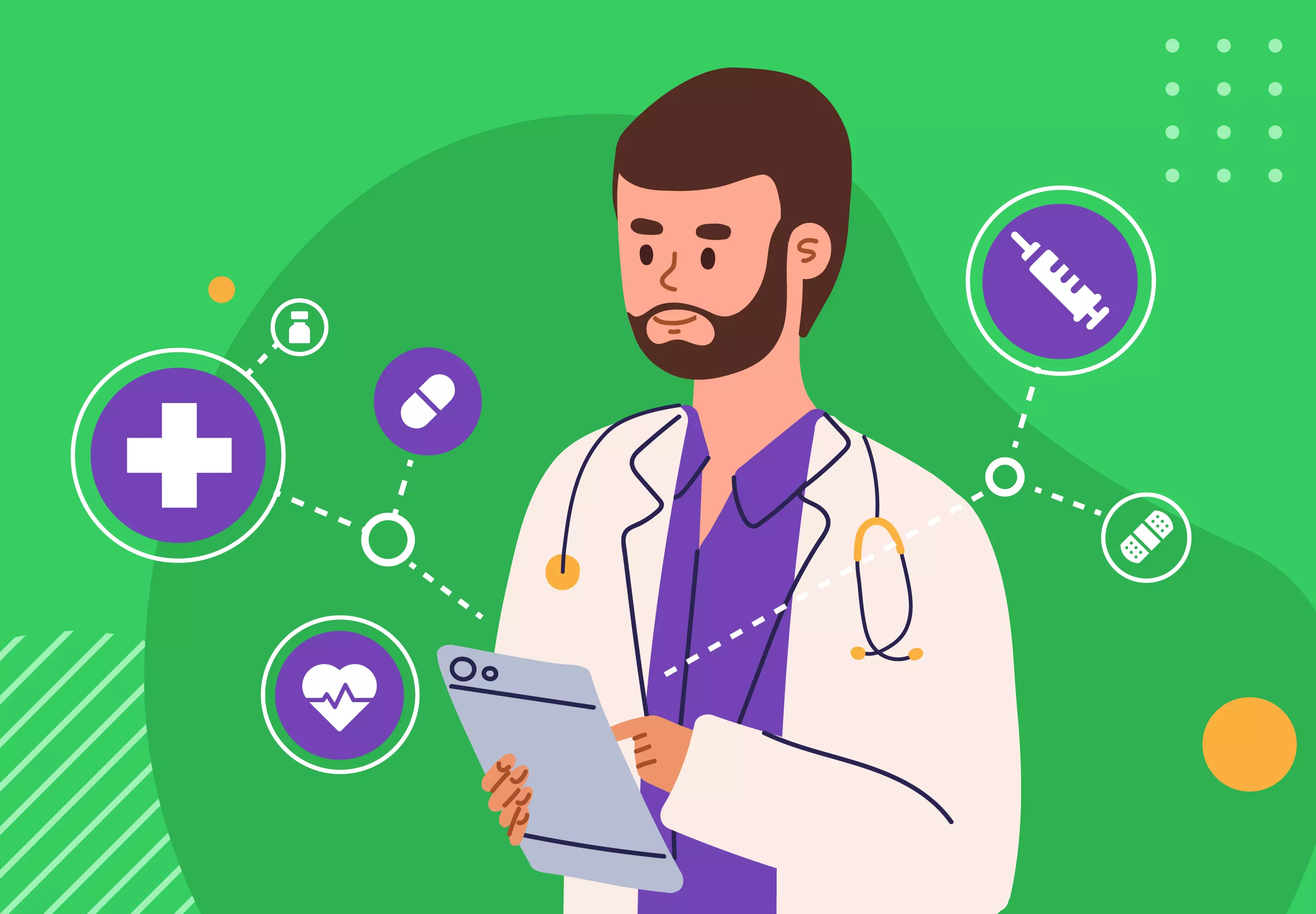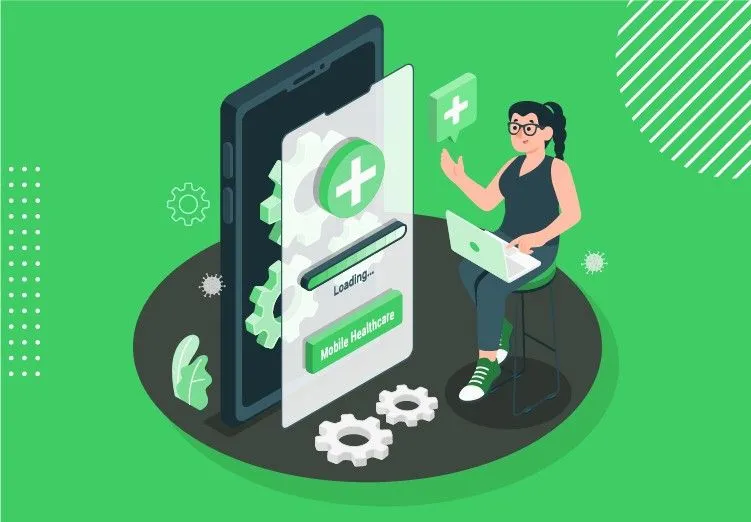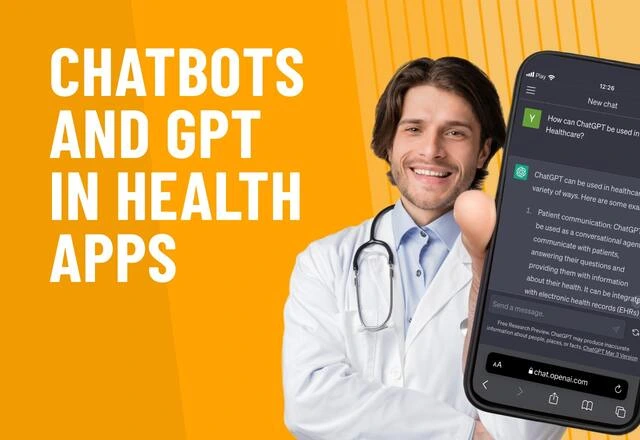Know the Difference: EHR vs EMR vs PHR vs PP
Table of contents
- Electronic Health Record (EHR)
- What Is EHR?
- What Are the Features of an EHR System?
- Advantages and Disadvantages of EHR for Business
- Key Advantages of EHR
- Possible Drawbacks of EHR
- Electronic Medical Records (EMR)
- What Is an EMR System?
- EMR Features
- Advantages and Disadvantages of EMR Systems for Business
- Benefits of EMR
- EMR Drawbacks
- Personal Health Record (PHR)
- What Is a Personal Health Record (PHR)?
- PHR Features
- Advantages and Disadvantages of Personal Health Records
- Benefits of PHR to Healthcare Professionals
- PHR Benefits for Patients
- Possible PHR Pitfalls
- Patient Portals (PP)
- What Is a Patient Portal?
- Patient Portal Features
- Benefits of Patient Portals
- EMR vs. EHR vs. PHR (PP)
- The Bottom Line
Quite often, people don’t see any difference between EHR, EMR, and PHR solutions, using these acronyms interchangeably. And while it’s true that all three have something in common, the nature of each is distinct. And with Patient Portals (PP) inserted in this list, things get even more confusing: for patients, customers, and even potential owners of the solution.
So how to draw a distinction between EHR, EMP, PHR, and PP? To do this, we’ll define each solution separately, point out key features, benefits and possible pitfalls, and then conclude with a comparison by various criteria to give you a taste of what’s what.
Electronic Health Record (EHR)
What Is EHR?
Describing an EHR system in simple words, we can say that it’s a patient’s paper chart in digital form, which can be accessed by authorized parties involved in a patient’s care for data entry/management. These data include a patient’s diagnosis, treatment plans and prescriptions, test results and radiology images, allergies and immunization dates, etc.
What Are the Features of an EHR System?
Because EHR systems are not created equal, below we provide a brief overview of must-have and possible features a system may have. Still, the list is not complete and can be extended with other features required by an individual client.
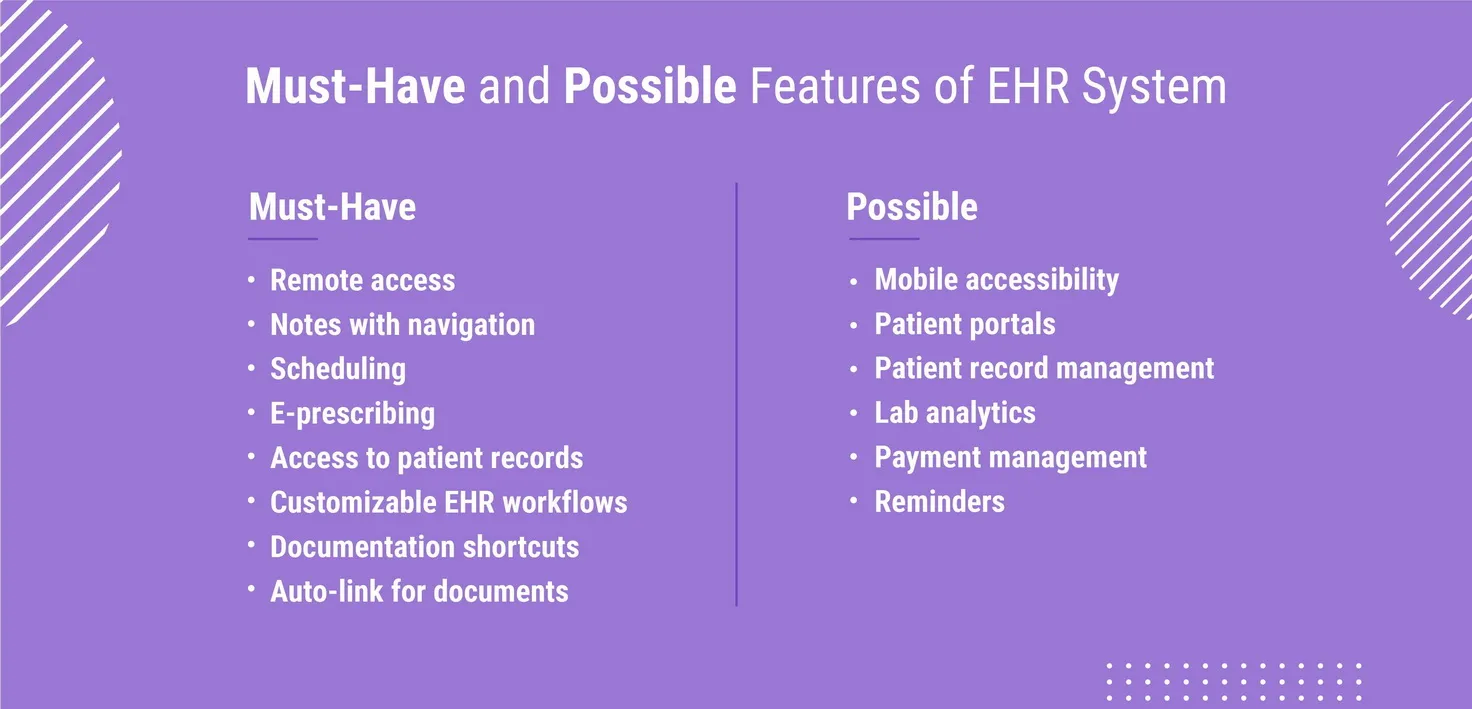
Advantages and Disadvantages of EHR for Business
So, let’s assume that you have implemented an EHR solution into the business processes of your organization. What benefits can you expect and what are the possible drawbacks to keep in mind?
Key Advantages of EHR
- Quick access to accurate and up-to-date patient data
- Data sharing capabilities for greater coordination of care
- Built-in receipts, invoices, and statements management
- Efficient scheduling with automated appointment reminders
- Improved diagnostics with respect to any medical conditions, allergies, or medications
- Saved time with functionality for voice-to-text translation and speech recognition
- Reporting and analytics for useful insights
- Increased productivity of a healthcare organization
Possible Drawbacks of EHR
- EHR systems can be attacked by hackers, so there are concerns around potential privacy and cybersecurity issues
- If there’s a patient portal in an EHR system, patients can be exposed to information that can needlessly frighten them
- EHR system development is not simple and can take significant time and money, but this depends on the provider and rates
- To perform effectively, EHR systems need updates that also result in money spendings
Read more on EHR benefits and potential challenges in the dedicated article.
Electronic Medical Records (EMR)
What Is an EMR System?
EMR is also a solution that provides access to the digital version of the patient charts created by individual health providers. But, in contrast to EHR, EMR is more limited in terms of data sharing, which means that data transfer is generally possible only within one organization or facility.
EMR Features
EMR systems vary because there’s always a lot of space for their customization. Still, let’s look at the essentials of a modern solution.
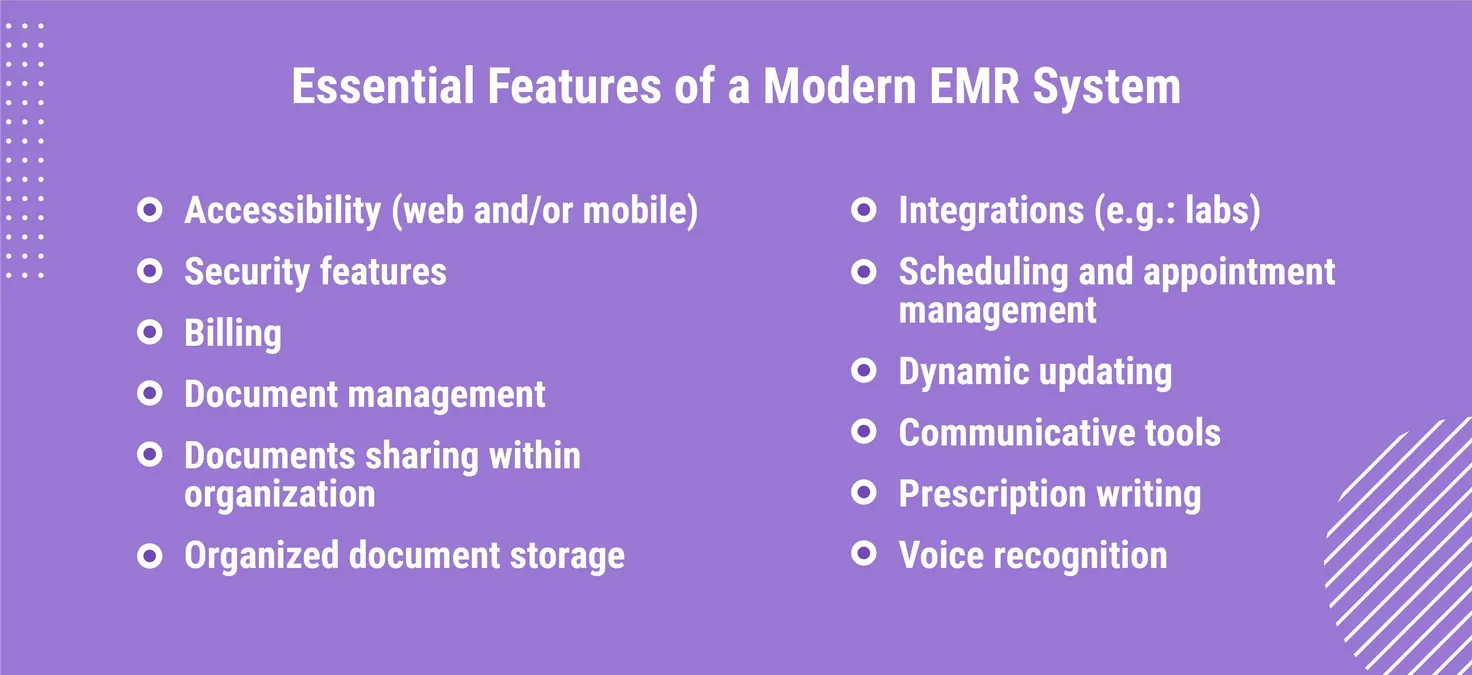
Advantages and Disadvantages of EMR Systems for Business
So why and when choose EMR system development over other similar solutions? Here are some pros and cons of EMR to consider before making a decision.
Benefits of EMR
- Give healthcare professionals a clear picture of their patient health
- Improve communication between healthcare professionals and their patients
- Increase effectiveness and accuracy of care
- Minimize the possibility of duplicate tests
- Improve the effectiveness of preventive care and chronic disease management
- It’s a simpler and often cheaper solution than, say, EHR.
EMR Drawbacks
- In contrast to EHR, EMR doesn't support interoperability or the exchange of information
- Again, compared to EHR, EMR generally has more limited functionality
- There’s a possibility that the EMR term could become obsolete in the near future
Personal Health Record (PHR)
What Is a Personal Health Record (PHR)?
PHR solutions are focused on patients’ needs, providing them with the ability to store their health records from different healthcare organizations, providers, etc. Healthcare professionals can access data collected in PHR only if a patient agrees to share it, which means that data management is exactly under a patient’s own responsibility. Examples of personal health records include such solutions as MyChart, Microsoft HealthVault, and others.
PHR Features
Because data stored in PHR is more personal and end users are not doctors but their patients, features and functions of such systems differ from those described above. Here are some of the flagship ones.
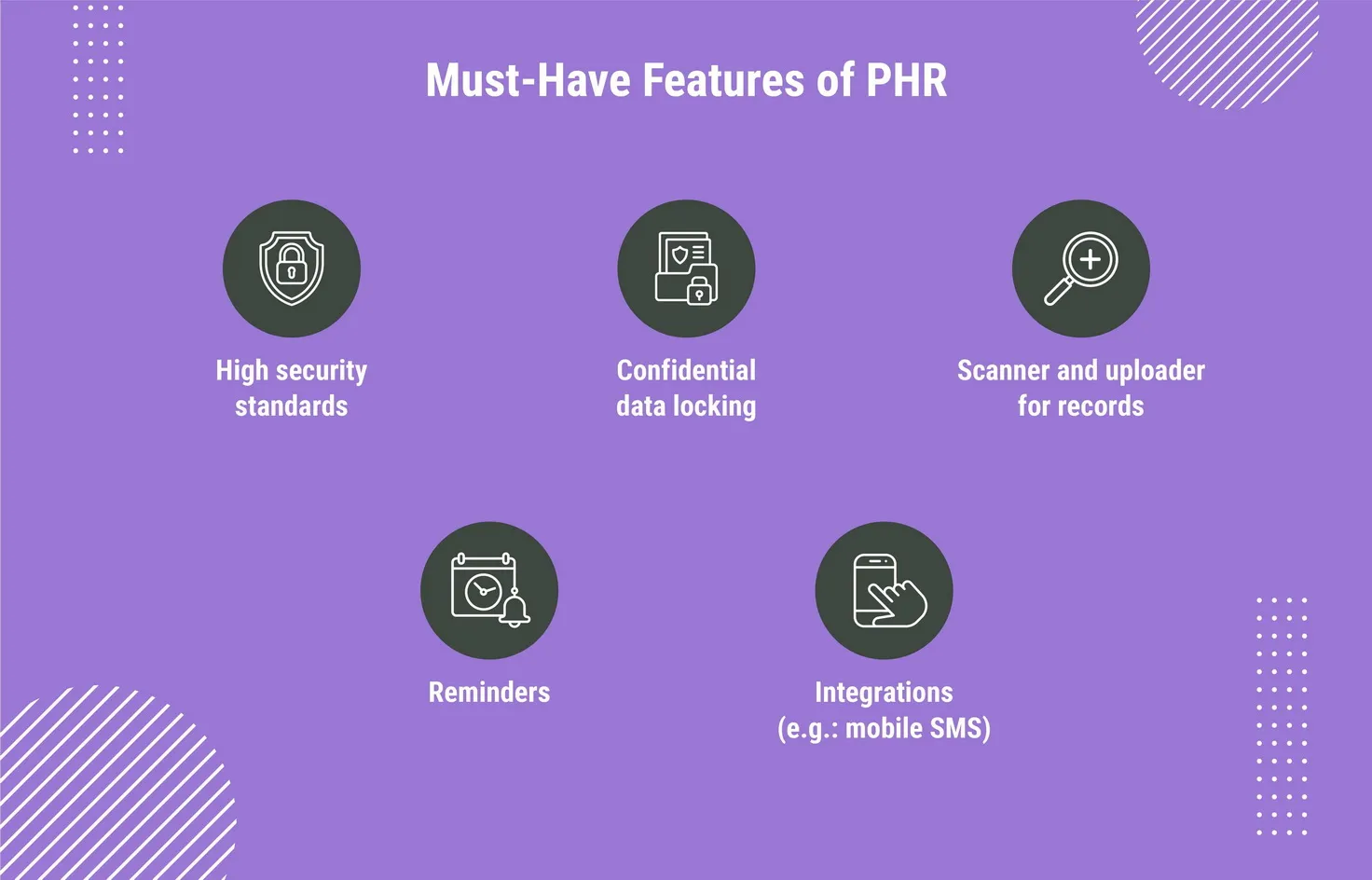
Advantages and Disadvantages of Personal Health Records
When it comes to the advantages of PHR systems, it’s worthy of saying that despite such solutions are targeted to patients, healthcare professionals can also reap some significant benefits.
Benefits of PHR to Healthcare Professionals
- PHR systems work great for tracking a patient’s healing progress
- They allow specialists to make better decisions on treatment
- Access to PHR can ensure a more accurate diagnosis
- Allow monitoring a patient’s condition remotely
PHR Benefits for Patients
- Make patents more organized
- Motivate patients by allowing them to track health goals
- Save money by reducing the possibility of repeated tests
- Ensure easy access to health information
Possible PHR Pitfalls
- PHR document management can be difficult for patients
- There’s a possibility of incorrectness of information entered by patients
- Elderly people can be challenged by how to operate the system
- HIPAA regulations are applied to specific conditions
- There’s a possibility of data misunderstanding, which leads to a patient’s anxiety
Patient Portals (PP)
What Is a Patient Portal?
There’s often a lot of misunderstanding around patient portals that are sometimes viewed as a separate solution. But the truth is that Patient Portals are actually PHRs tied to an Electronic Health Record system.
Patient Portal Features
These web portals are similar to PHRs but in some cases can be enriched with additional features due to the joint operation with an EHR system. For example, these could be tools for messaging with doctors, in-app payments, educational libraries, etc.
Benefits of Patient Portals
Using PHR (PP) tied to EHR, patients can enjoy such additional benefits as:
- Message their doctors
- Request prescription refills
- Schedule appointments
- Make payments
- View educational materials, etc.
EMR vs. EHR vs. PHR (PP)
Now, when you know what’s what, it’s time to sum everything up and see the difference between the discussed solutions.
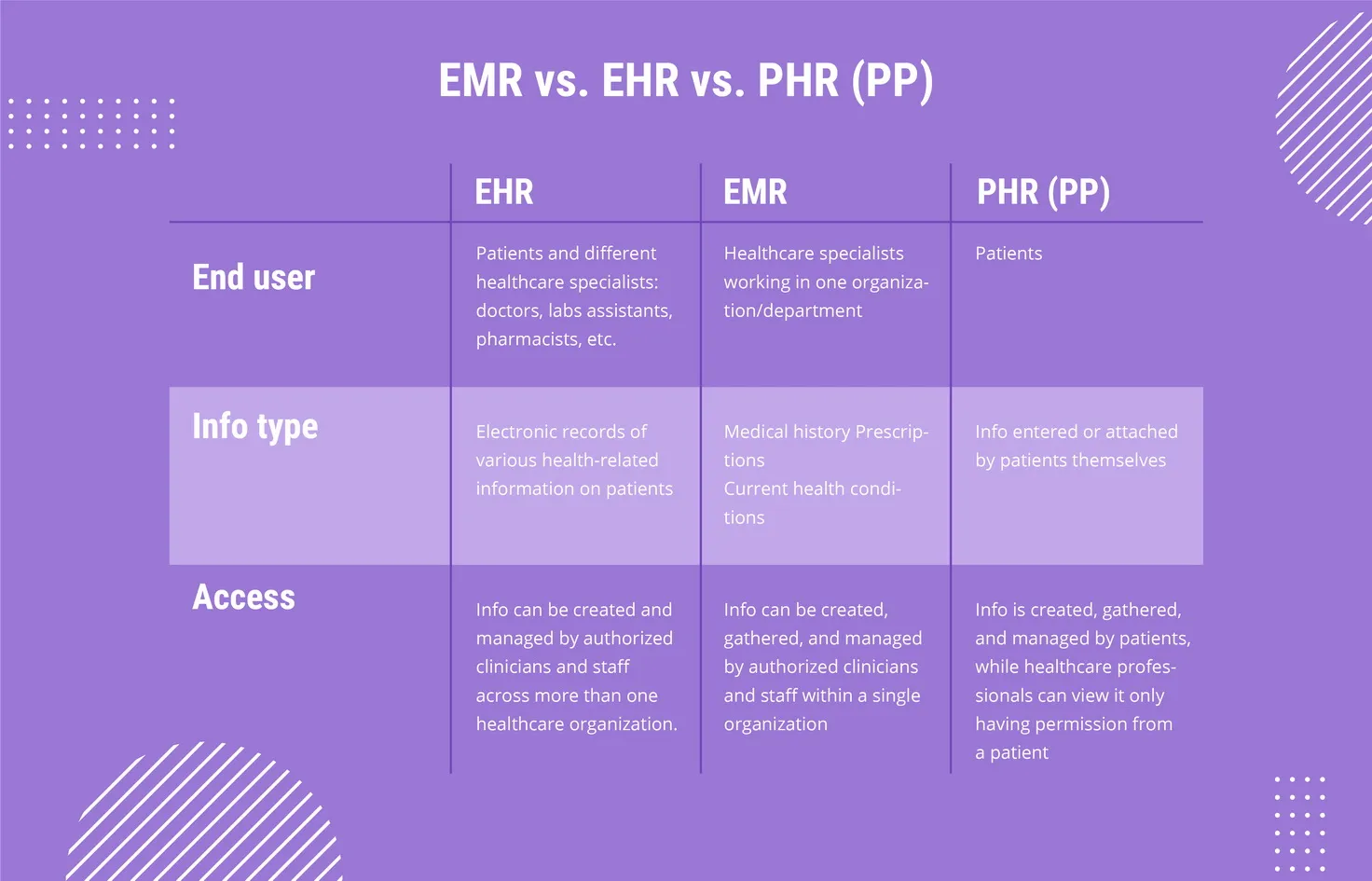
The Bottom Line
To conclude, here is some advice for you to follow when choosing between EMR, EHR, and PHP (PP):
- EMR systems are suitable in case your healthcare organization is focused on the provision of particular healthcare services, whether it is dentistry, psychiatry, etc.
- EHR systems are perfect for more complex in structure organizations with numerous departments and a number of services provided (X-Rays, emergency, surgery, etc.).
- PHR and PP are a good choice for healthcare providers who put their patients first and are willing to ensure patients’ fast recovery, improved preventive care, and increased trust in services provided.
Hoping that things got clearer, we are still here to answer all of your questions if there are any. Backed by tens of complex EHR and EMR system developments, PHR and PP implementations, some of which are described in the portfolio section to give you a taste of what we do and how your business can benefit from solutions we create, our professionals are always open to your brightest ideas. So whether it is a project on a napkin, some well-thought-out solution, or it’s just a desire to keep your healthcare system up-to-date and enrich it with some innovative techs such as blockchain, AI, ML, chatbots, etc. — we have got you covered.
Published on May 8, 2023
